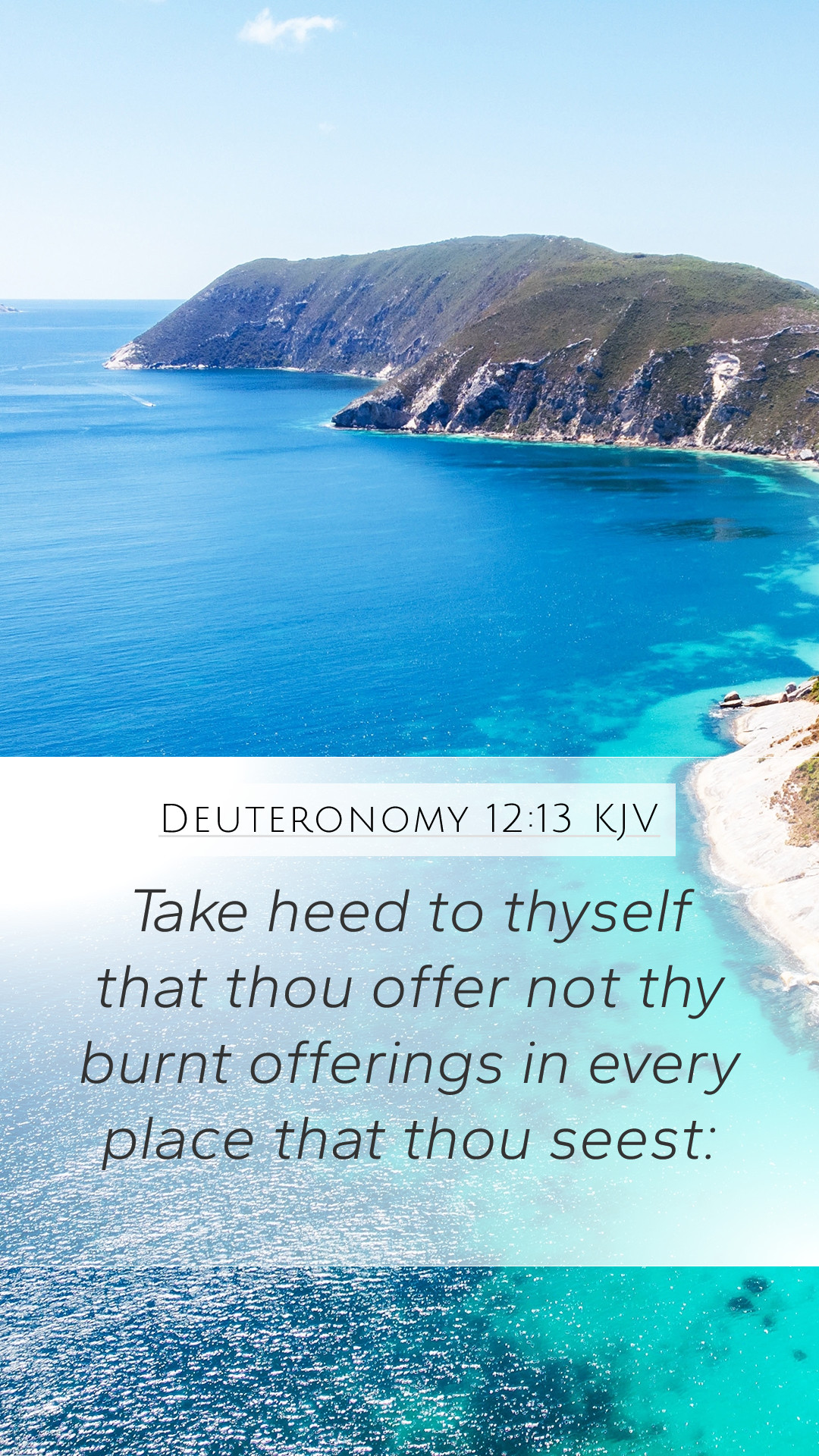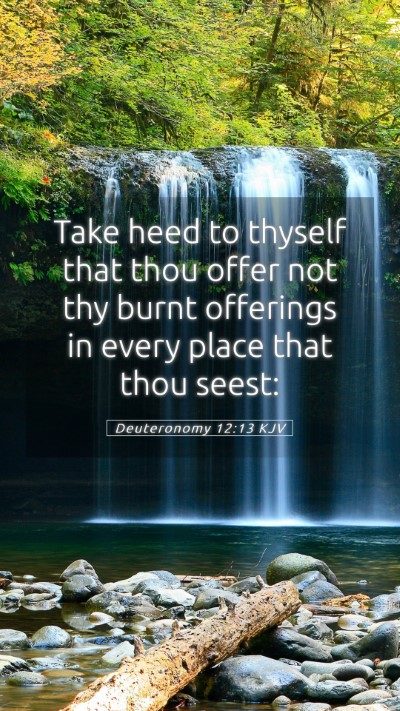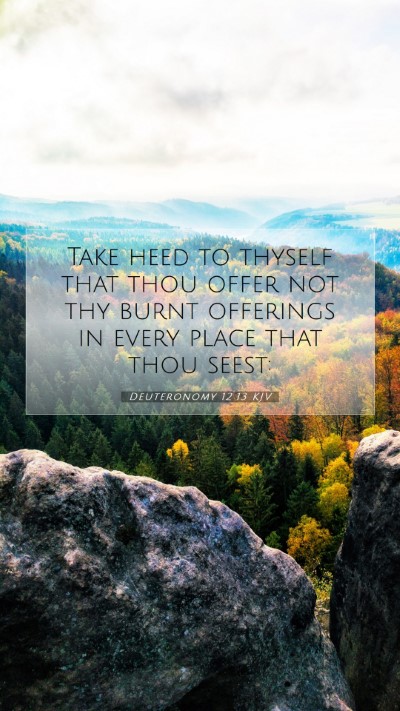Bible Verse Meaning for Deuteronomy 12:13
Deuteronomy 12:13 states: "Take heed to thyself that thou offer not thy burnt offerings in every place that thou seest." This verse carries significant meaning and implications within the context of Biblical law and worship.
Summary of Bible Verse Understanding
This instruction from Moses to the Israelites underscores the importance of centralized worship and the sanctity of designated places for offering sacrifices. The verse guides them to avoid the temptation of worshiping God in places of their choosing, which could lead to practices that veer away from God's commandments.
Insights from Commentators
-
Matthew Henry:
Henry emphasizes the necessity of discernment in worship. He argues that this command prevents the Israelites from falling into idolatrous practices that may arise from spontaneous, unregulated worship. The directive aims to unify the people’s worship around one central sanctuary as a way to uphold God's holiness and statutes.
-
Albert Barnes:
Barnes explains that the restrictions on where to offer sacrifices highlight both the personal accountability of individual worshippers and the importance of community practices. The choice of a specific location for worship serves to reinforce that God not only desires fidelity in worship but also a collective identity among His people.
-
Adam Clarke:
Clarke elaborates on the historical context, noting that the command reflects the transition of Israelite worship from various high places to a central temple. He points out that varied worship practices could lead to moral decay and dilution of true faith, making adherence to a centralized place for offerings crucial to maintaining their covenant relationship with God.
Application of Deuteronomy 12:13
This verse speaks to contemporary readers about the importance of structure in worship and community. It can be interpreted as a call to remain committed to established channels of spiritual practice—be it through a church community or a recognized method of worship—thereby fostering unity and proper understanding of one's faith.
Cross References
- Exodus 20:24: "An altar of earth thou shalt make unto me, and shalt sacrifice thereon thy burnt offerings..."
- Leviticus 17:3-4: "What man soever there be of the house of Israel, that killeth an ox, or a lamb, or a goat..."
- Deuteronomy 12:5: "But unto the place which the LORD your God shall choose out of all your tribes..."
Conclusion
Through this scripture analysis, we gather that Deuteronomy 12:13 is not merely about the location of offerings but encapsulates a deeper principle of worshipfulness and community. It reminds us of the importance of adhering to God's ordained methods for worship and reflects on the broader themes of obedience and centralization in faith practice.
Further Bible Study Insights
For more thorough understanding, Bible study groups may delve into topics on how to interpret Bible verses, explore online Bible study resources, and utilize Bible study tools that provide deeper insights into Scripture. Engaging with detailed commentary, like those of Matthew Henry, Albert Barnes, and Adam Clarke, can enrich one’s understanding of difficult Bible passages and enhance one's faith journey.


